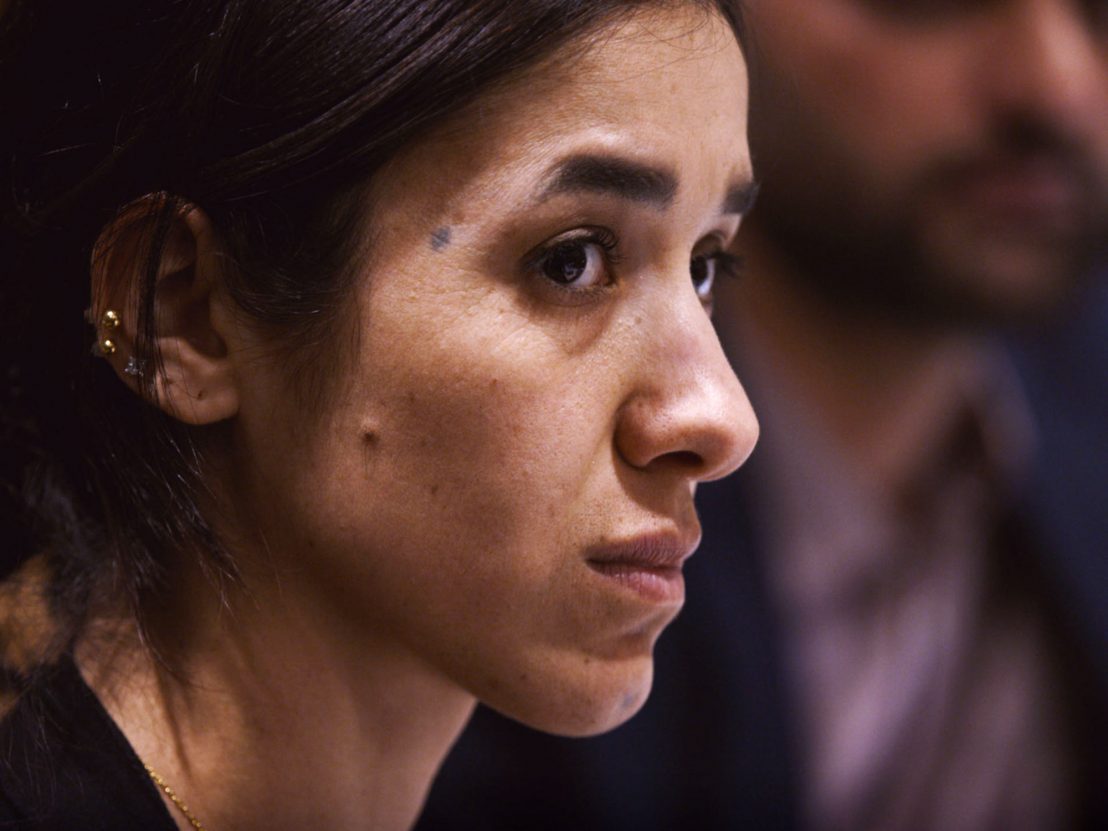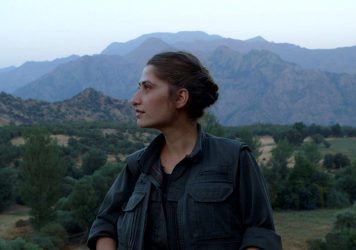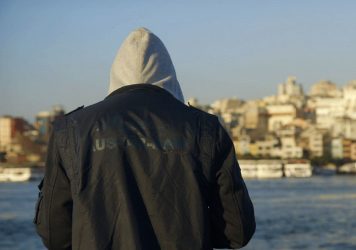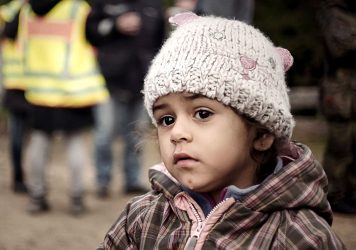
A compelling look at the global campaigning of sex slave survivor turned reluctant Yazidi activist, Nadia Murad.
Documentaries that dissect contemporary tragedies in the Middle East have all but become their own sub-genre. Such are the horrors that continue to impact the region – in Syria (Last Men in Aleppo), Palestine (Five Broken Cameras), Iraq/Afghanistan (The Unknown Known) and others – it can seem too easy to claim war fatigue and look away.
Alexandria Bombach’s fly-on-the-wall account of Nadia Murad’s defiant mission to seek justice from the UN certainly makes for confronting viewing. Her village in Northern Iraq was taken over by ISIS, who executed all the men and took the women and girls as sex slaves – leaving thousands widowed, orphaned and irreversibly traumatised. The rest of the world appeared to do nothing.
Enter Murad, a 23-year-old villager who once had dreams of opening her own salon. She meets with world leaders, endures a media frenzy complete with abhorrent questioning and addresses her people as their reluctant leader, in a drastically altered landscape where the future of their land hangs in the balance. With the odds stacked against them – as we are told, the Yazidis make up a fraction of the world’s 60 million refugees – it’s almost too much to watch the despair that permeates throughout Murad’s very being, threatening to unleash at any moment. A telling sequence, where Europe’s role in determining the Yazidi’s fate appears to effectively finish what ISIS started, tests even the most stoic of souls.
Bombach is intuitive as she tracks each step of Murad’s agonising journey – only a woman director could surely have directed this powerful film so eloquently. With an insider’s view of Murad’s roving campaign HQ (manned by her selfless advisor cum translator Ismael), we see the fragility of a survivor confronting her fears and ploughing on, despite her innate desire to do otherwise. Revealing an accidental activist in action, Bombach’s film could so easily have been called The Reluctant Hero – although to do so would define Murrad as a victim, something she vows never to be.
Hope comes in the form of Amal Clooney, who takes up Murad’s case in demanding the UN tries ISIS for their genocidal crimes. Amidst all the polite smiling Murad musters for leaders and dignitaries in Canada, Germany, Greece and the US, a crucial speech in front of the UN offers just a few minutes for her to present her case. This is the moment that could define her people’s fate, as she pushes for ISIS to be tried for war crimes.
Bombach shoots (and edits) much of the film, and is aided by a visceral score from Patrick Jonsson (The White Helmets) which will leave you in pieces. The fate of the Yazidis is far from certain, of course – a fact the film openly acknowledges – and even Murad must accept the need for security, having received death threats of retaliation for her campaigning. There can be no happy ending, but one is left with a sense that just maybe, a solution can be found. A heartbreaking and powerful film made all the more so in light of the #MeToo movement and recent women’s marches.
Published 22 Jan 2018

Gulîstan, Land of Roses follows an all-female regiment of Kurdish guerillas as they prepare for war against Daesh.

The importance of citizen journalism comes to the fore in Matthew Heineman’s vital documentary.

By Matt Turner
At Sheffield Doc/Fest a trio of films reveal the horror and hope at the heart of the conflict.